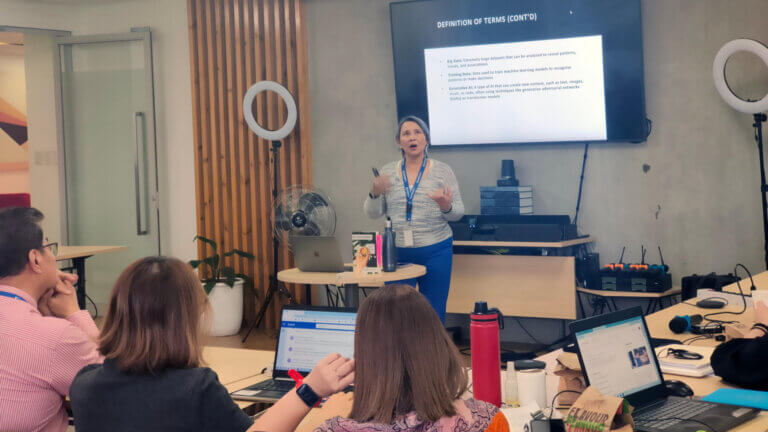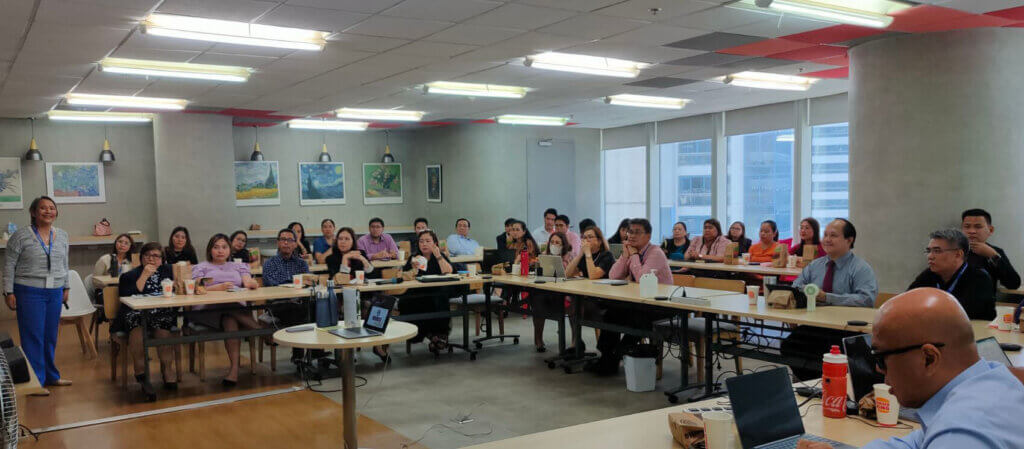In preparation for the world of AI, a series of sessions for all JCCI and EDI-SBI employees were scheduled to learn more about AI and how they can use it to enhance productivity in both their professional and personal lives. This series, titled “Demystifying AI,” was designed to introduce the fundamentals of AI and its practical applications.
Session 1: Insights from Carol Dominguez
The first session of the Demystifying AI series was facilitated by President and CEO Carol Dominguez. She shared lessons and key takeaways from her experiences at Northwestern University and Harvard Business School. Her presentation summarized various Large Language Models (LLMs), their features, capabilities, and limitations. She also showcased how AI is being utilized across different industries, including the music industry.
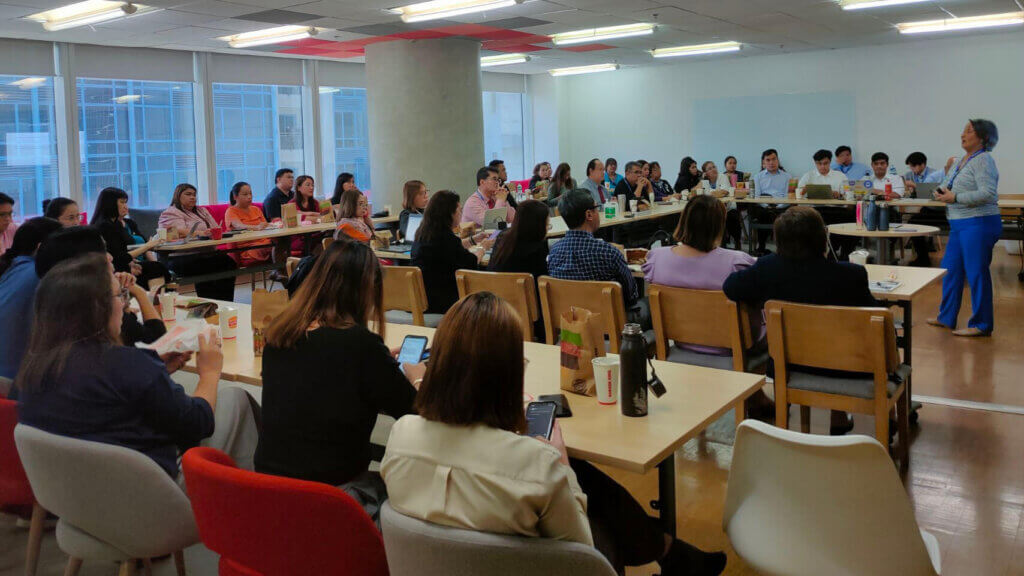
Session 2: Understanding AI History and Key Terms
In the second session, participants received a historical perspective on AI and identified key terms essential for understanding AI. I started the session by launching a poll to gauge how attendees currently use AI. Over 70% of respondents indicated they use AI for specific work tasks, about 20% use it for everything they do, and no one indicated they never used AI. It was encouraging to see that everyone was familiar with and using AI.
A Brief History of AI
AI is not a recent discovery. Its origins date back to the 1940s, with Alan Turing being a notable pioneer. Turing’s 1950 paper, “Computing Machinery and Intelligence,” proposed a test of machine intelligence called the Imitation Game. (Trivia: The movie “The Imitation Game” is based on Turing’s work during World War II, where he built a machine to crack Nazi codes.) Turing is also considered the father of computer science. The term “artificial intelligence” was coined by John McCarthy in 1955 during a workshop at Dartmouth College. Continuous research and government funding led to an AI boom in the 1980s. In 1997, IBM’s Deep Blue beat reigning chess champion Garry Kasparov, marking a significant milestone. AI’s integration into everyday life continued with innovations like Roomba, Siri, and Alexa. In 2022, OpenAI introduced ChatGPT-3.5, revolutionizing the field.
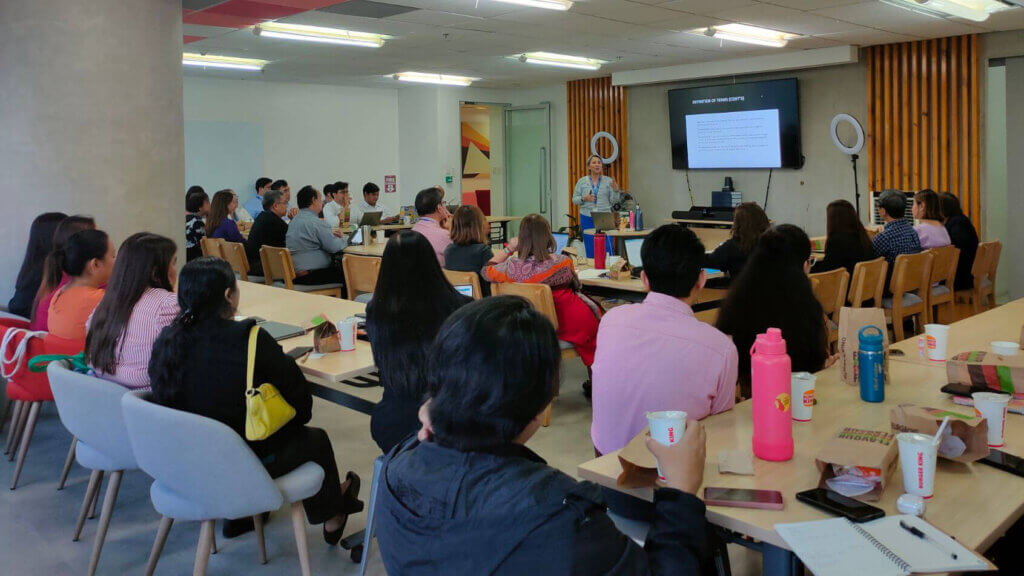
Defining AI Terms and Practical Applications
The session also defined various AI terms and covered the practical applications and ethical considerations of AI. With LLMs like ChatGPT-3.5, users have tools that can assist with writing, idea generation, creating images, videos, and songs, and even learning to code. However, ethical considerations are crucial to ensure AI benefits humanity and remains under human control. Data protection and preventing unauthorized access are also essential.
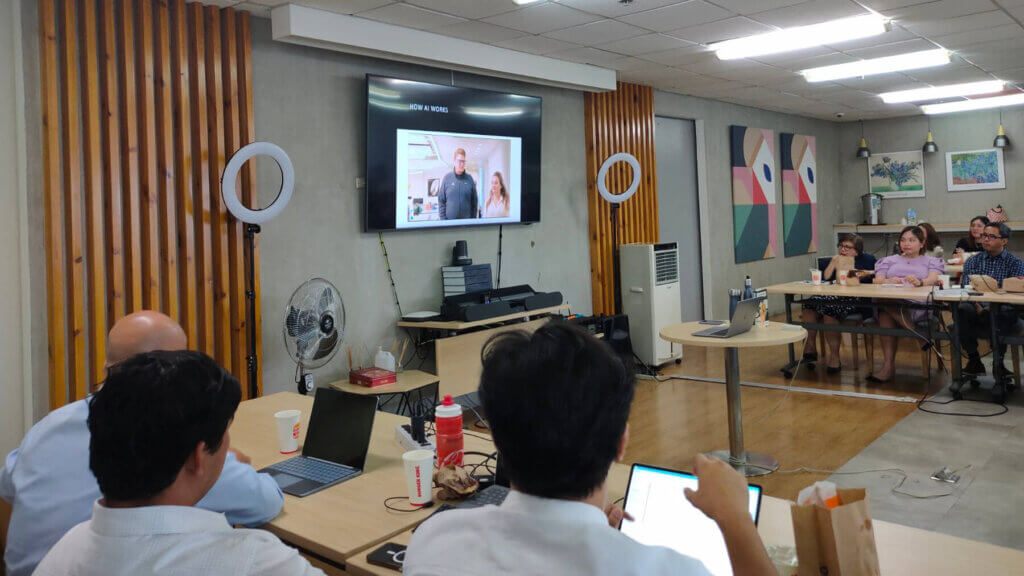
Principles for Utilizing AI
The session concluded with a discussion on Ethan Mollick’s book, “Co-Intelligence,” which proposes four principles for utilizing AI in daily life:
- Always invite AI to the table: Experiment with AI to become an expert in its use.
- Be the human in the loop: Incorporate human judgment and expertise when using AI, being aware of its limitations.
- Treat AI like a tool: Avoid “anthropomorphism” (assigning human characteristics to something non-human) and guide AI to achieve desired outputs.
- Assume this is the worst AI you will ever use: Recognize the rapid advancements in AI and continually adapt.
Looking Ahead
The second session aimed to provide participants with a deeper understanding of AI and how to utilize it to enhance productivity in their daily lives.
Come visit our official blog to read more about artificial intelligence and other insightful topics!

